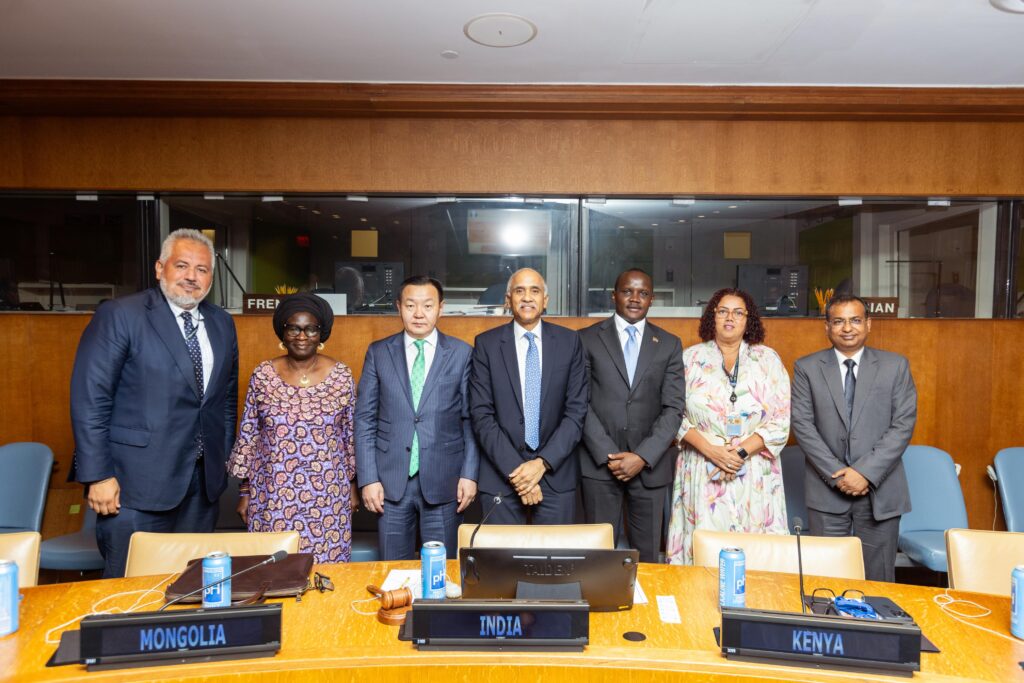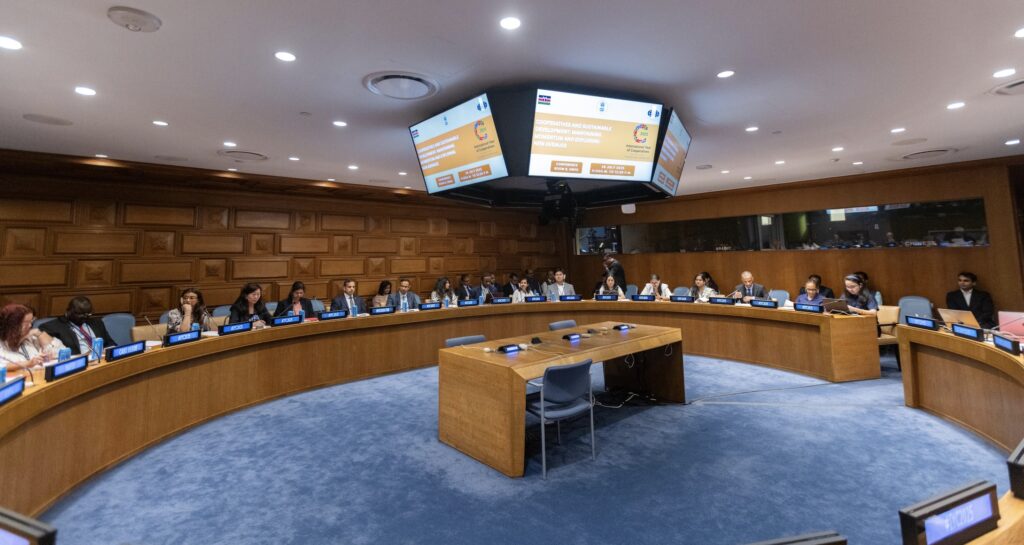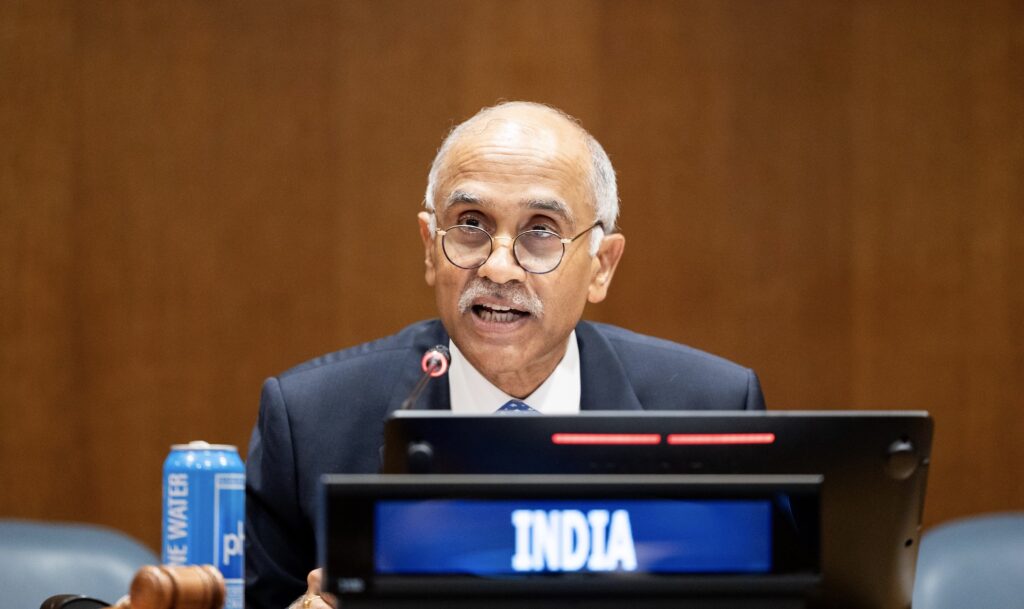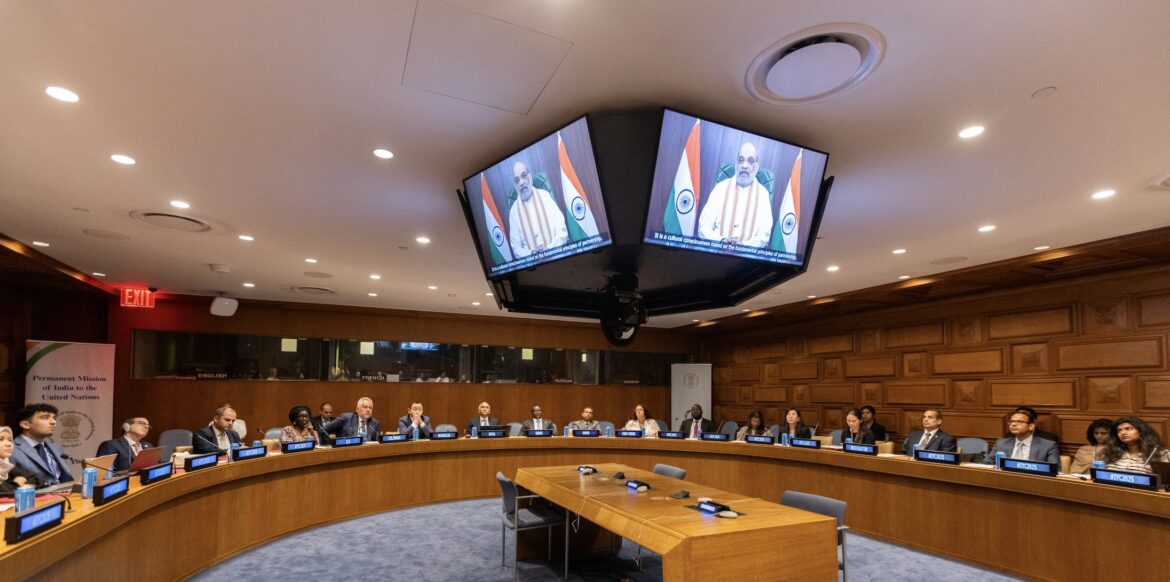To commemorate the International Year of Cooperatives 2025, the Permanent Mission of India to the United Nations, in partnership with the Permanent Missions of the Republic of Kenya and Mongolia, organized a special event on July 28, at the United Nations Headquarters, in New York.
Themed “Cooperatives and Sustainable Development: Maintaining Momentum and Exploring New Avenues,” the event highlighted the critical role of cooperatives in driving inclusive and sustainable progress.
The gathering brought together representatives of UN Member States, UN agencies, senior government officials, cooperative leaders, and global stakeholders to celebrate the contributions of cooperatives and emphasize their “vital role in sustainable development, gender equality, economic empowerment, and social inclusion.”

In a virtual address, India’s Minister of Home Affairs and Cooperation, Amit Shah, extended greetings to delegates and affirmed the continued relevance of cooperation in today’s world, calling it “essential for sustainable and inclusive development.”
“I firmly believe that the principles of cooperatives, their values, and their people-centric approach make them one of the most impactful models of human-centered development. Cooperatives not only meet the needs of the present generation but are continuously working to secure opportunities for the generations to come,” noted Minister Shah.
Reflecting on India’s leadership during the official launch of the International Year of Cooperatives in November 2024, Shah recalled Prime Minister Narendra Modi’s vision that cooperatives could inject new momentum into global collaboration.
“Especially for the Global South, where special development models are needed, Cooperation can play a vital role. Therefore, we must move forward with new ideas and new pathways of global cooperation,” Shah quoted PM Modi.

Minister Shah reaffirmed India’s commitment to advancing “inclusive, sustainable, and human-centered development” through cooperative initiatives. He noted that cooperation in India is deeply embedded across sectors, “from agriculture to finance, consumption to construction, and rural empowerment to digital inclusion,” built on mutual collaboration and democratic participation.
“Its unique strength lies in the fact that it delivers benefits at the local level while also becoming a powerful medium for providing dignified livelihoods in rural and underdeveloped areas,” Shah said. “Through cooperation, women, youth and marginalized sections of Indian society have today become active participants and stakeholders in the journey of national development.”
He emphasized that under Prime Minister Modi’s leadership, the establishment of the Ministry of Cooperation in 2021 marked a historic milestone. Today, India hosts over 840,000 cooperative societies with more than 320 million members engaged in grassroots development.
“Cooperation is laying a strong foundation of service, self-reliance, employment, and innovation,” Shah noted, adding that it is giving India’s inclusive development model global visibility.
The Minister also spoke about the recently established Tribhuvan Sahkari University, which will function as a national hub for cooperative education, research, and leadership development. He added that Indian cooperatives have expanded beyond their traditional roles and are now driving innovation in digital services, healthcare, education, energy, organic farming, and financial inclusion. He further underscored that the technological innovation is making cooperatives more “inclusive” today.

In his opening remarks, India’s Permanent Representative to the United Nations, Ambassador Parvathaneni Harish, underscored the historical role of the cooperative sector in India’s development journey. He highlighted ongoing reforms, such as the forthcoming National Cooperative Policy 2025–2045, and stressed the need for adopting emerging technologies, including artificial intelligence, to help cooperatives remain effective in a rapidly changing world.
At the event, Permanent Representatives from other UN Member States also shared their national experiences and proposed steps to foster global collaboration for strengthening cooperative landscape.
Ambassador Erastus Ekitela Lokaale of Kenya advocated for an expanded role of cooperatives in achieving sustainable development; Ambassador Ankhbayar Nyamdorj of Mongolia emphasized the importance of youth engagement and technological innovation in cooperatives; and Ambassador Raúl Esteban Sánchez Niño, Deputy Permanent Representative of Colombia, called for greater solidarity and knowledge-sharing across cooperatives worldwide.
They also urged global platforms, such as the upcoming 2nd World Social Summit on Development, to highlight the socio-economic value of cooperatives.
The event also featured other presentations from Managing Director of the National Agricultural Cooperative Marketing Federation of India Ltd (NAFED), Deepak Agarwal, and Special Representative to the UN and Director of the ILO Office for the United Nations, Cynthia Samuel-Olonjuwon.
While Agarwal delivered a presentation on India’s cooperative ecosystem, showcasing the spirit of shared ownership and collaboration, Director Samuel-Olonjuwon, in her presentation, reinforced the idea that cooperatives must be prioritized to foster inclusive and sustainable development globally.
In a video message, President, International Cooperative Alliance (ICA), Ariel Enrique Guarco, emphasized the significant role that cooperative enterprises play in furthering “economic development, poverty reduction, employment creation, and social integration.”






